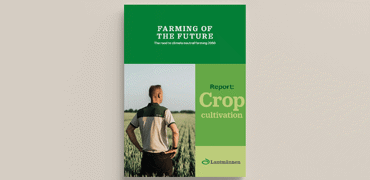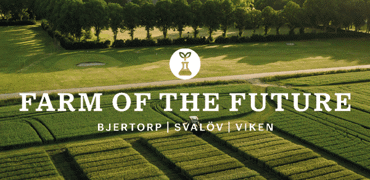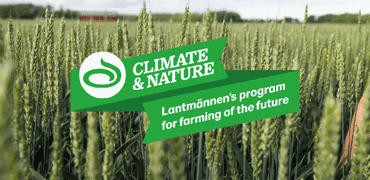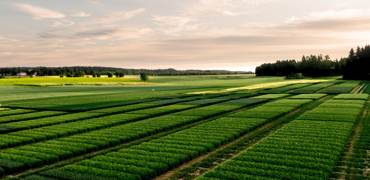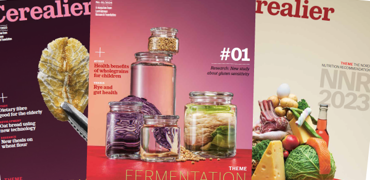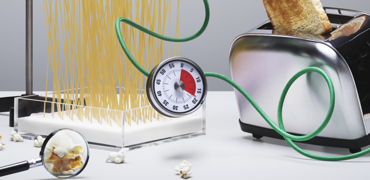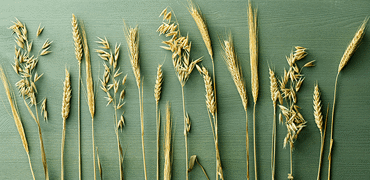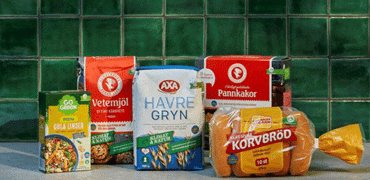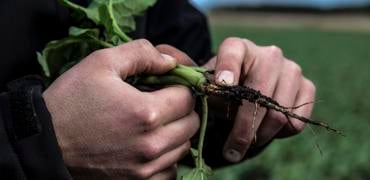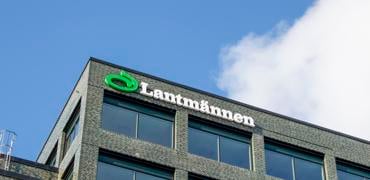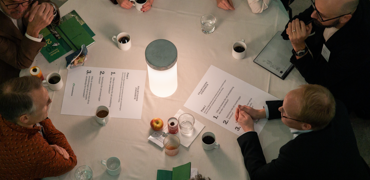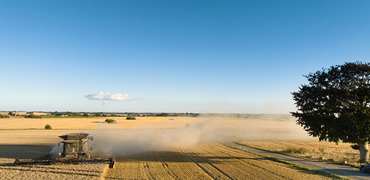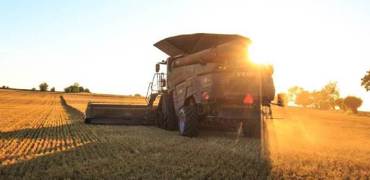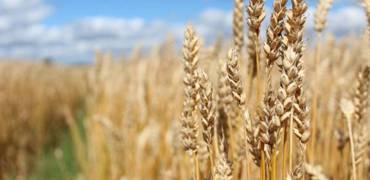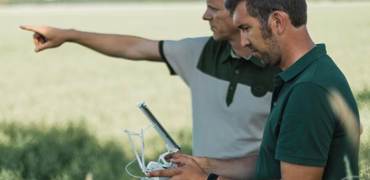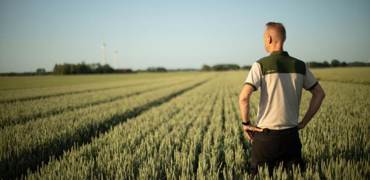Right now, many issues critical to society rise to the surface. The crisis caused by the COVID-19 pandemic creates great pressure on all social functions – not least when it comes to Lantmännen’s core business. Our members are starting the spring tillage for crops we will harvest this fall; that work can’t be put on pause. Our operations are important for the entire agricultural production; fertilizer and seed are crucial inputs that we provide.
The work done in the agricultural and food industries is a pillar in society. Lantmännen has an important role to play in continuing to keep the operations going, but we need the right conditions from the rest of society. Jennie Nilsson, Minister for Rural Affairs, highlighted exactly that in a recent TV interview. She emphasized that people in the food value chain make up a group that is critical to society, and that food – just like health care – always needs to ‘just work.’ I agree with the minister, that we should praise and honor all the people who work to ensure that we have access to food.
Our operations are important for the entire agricultural production; fertilizer and seed are crucial inputs that we provide.
Swedish agricultural and food production is extremely important during a crisis. Politicians and decision-makers must work to an even greater extent to improve the conditions of competition for domestic production. Lantmännen, together with key players in the industry, has developed the ‘Growth initiative for Swedish agricultural and food production,’ which is meant to strengthen the industry’s competitiveness and increase production. Once the acute phase of COVID-19 is over, we have reason to resume the dialogue with policymakers.
The six-year-old in the family asked at the dinner table recently: ‘Mom and dad, are your jobs important?’ My wife, who is a pediatrician, quickly answered yes. My answer wasn’t quite as quick; I explained that the food sector is like a long chain that is interconnected, and that all parts need to work for us to eventually have good, sustainable, and healthy food on the table.
My name is Patrik Myrelid, I’m a trained agronomist and I work as the Director for Group Strategy at Lantmännen. I wrote this text following a dramatic work week, which was topped by Sweden’s government naming the food sector as one of 12 industries that are important to society. The purpose of the classification is to maintain childcare for children with parents in these sectors, in the event that our schools should be closed.
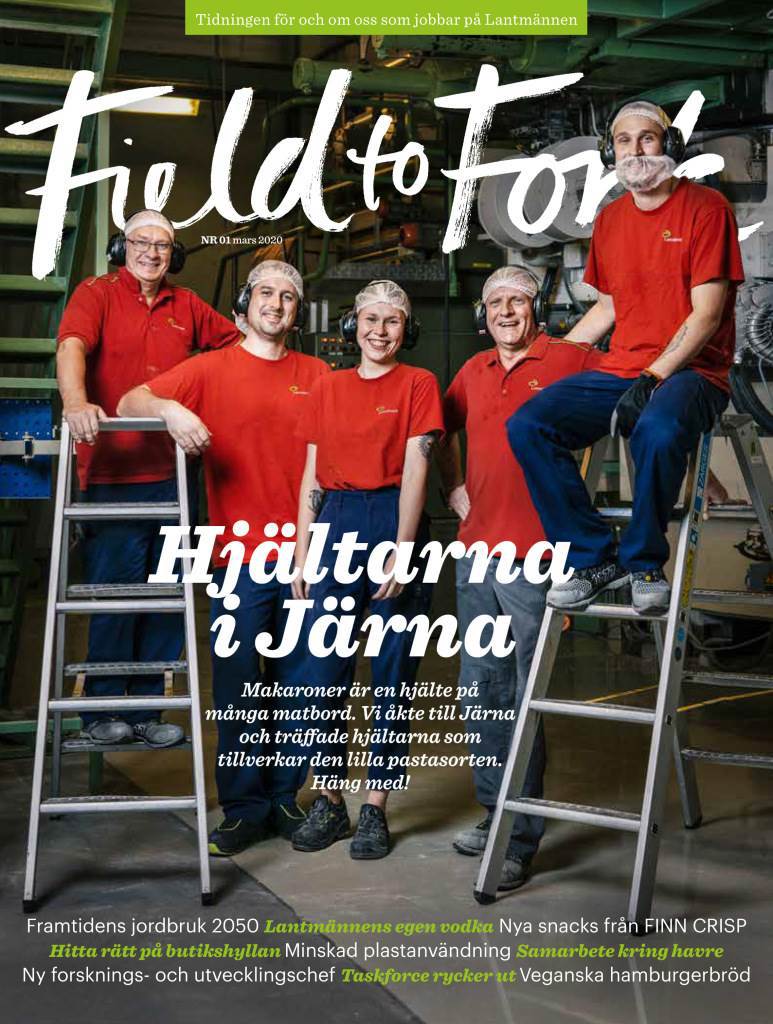
Right now, many issues critical to society rise to the surface. The crisis caused by the COVID-19 outbreak, designated a pandemic by WHO, creates great pressure on all social functions – not least when it comes to Lantmännen’s core business. Our members are starting the spring tillage for crops we will harvest this fall; that work can’t be put on pause. Our operations are important for the entire agricultural production; fertilizer and seed are crucial inputs that we provide. Right now, a lot has already been delivered to farms or is in stock, and so far we haven’t seen any significant problems with the flow of input goods from abroad.
My brother works on the family farm. I spoke to him earlier this week, while he was feeding the dairy cows silage feed. Sure, he’d already taken measures and actions in consideration of the virus. The diesel tank with fuel for all the machines and the spare-power unit were both well-filled. Together with his twin brother, who also works on the farm, he had decided that they shouldn’t travel in the same car or tractor. Also, the local dairy had made it clear that they couldn’t get to close to the milk truck driver – that also applied to the feed carrier. We also reflected on the fact that we, and previous generations on the farm, had milked cows every single day since 1925. Neither a world war, nor recessions, storms, nor any viruses attacking people or livestock were allowed to get in the way.
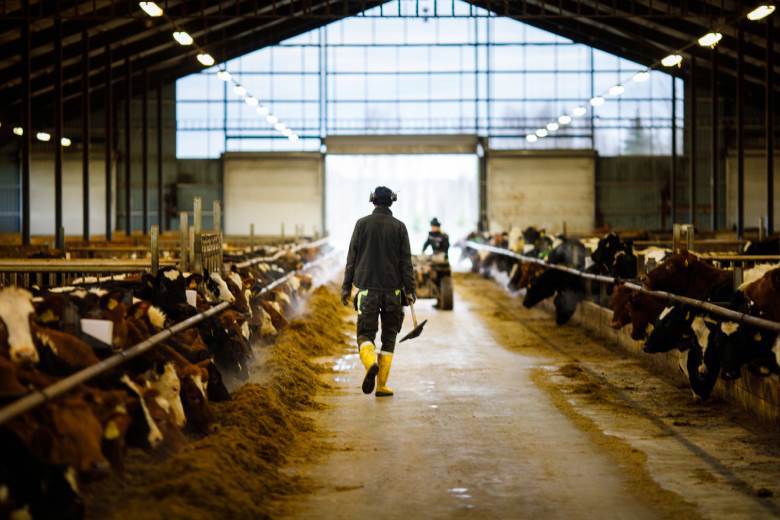
The work carries on – that’s the backbone of what Lantmännen is. Our agricultural companies deliver no matter the situation, which I believe is a solid foundation to build an operation that is important to society on.
In this situation, I would like to emphasize that the work done in the agricultural and food industries is a pillar in society. Lantmännen has an important role to play in continuing to keep the operations going, but we need the right conditions from the rest of society. That’s why I was pleased to hear Jennie Nilsson, Minister for Rural Affairs, highlighting exactly that in a recent TV interview. She emphasized that people in the food value chain make up a group that is critical to society, and that food – just like health care – always needs to ‘just work.’ I agree with the minister, that we should praise and honor all the people who work to ensure that we have access to food. This week, I received the employee magazine ‘Field to Fork’ in the mailbox. The front page is adorned by the colleagues who manage our pasta production in Järna. Rarely has a headline been more correct: the ‘Heroes of Järna’ every day supply consumers with macaroni and spaghetti from the Nordic region’s only pasta plant.
Nilsson promised that the personnel that is needed to secure the food supply in the country will receive special support to make that possible. We at Lantmännen welcome that message! The needs may, for example, be about prioritizing childcare for those people, to make sure that operations can continue. Logistics and transport flows, both within Sweden and in terms of import and export of important agricultural commodities, must be maintained. Measures to secure resources and personnel for that is of utmost importance.
In a situation such as this, our shared system is put to the test, and also shows how we need to prepare for the next possible crisis. The Minister for Rural Affairs pointed out in her interview that the issue of a secure Swedish food supply has already been identified as a weak point. I agree; compared to our Nordic neighboring countries, where Lantmännen also participates in securing food supplies, Sweden has some work do to.
These questions haven’t been on the agenda since the 1980s, but now they’re back on the political map. Today, there is a strong link to sustainability and impending climate change. New investments in developing innovation and research are needed. The food strategy, which is backed by a unified parliament, aims to increase food production in Sweden and increase agricultural productivity. That strategy is incredibly important going forward, and should have been put in place a long time ago.
Swedish agricultural and food production is extremely important during a crisis. Politicians and decision-makers must work to an even greater extent to improve the conditions of competition for domestic production. In general, the profitability and competitiveness for farmers is too weak to reduce its vulnerability. It doesn’t create conditions for long-term investments. If we can increase profitability, we can build a stronger chain that will withstand more. Lantmännen, together with key players in the industry, has summarized six measures in what we call the ‘Growth initiative for Swedish agricultural and food production,’ which is meant to strengthen the industry’s competitiveness and increase production. Once the acute phase of COVID-19 is over, we have reason to resume the dialogue with policymakers.
Back to the dinner table. After a moment’s reflection, the six-year-old decides that ‘both mom and dad have important jobs.’ A couple of days later, the Swedish government decides the same thing.







